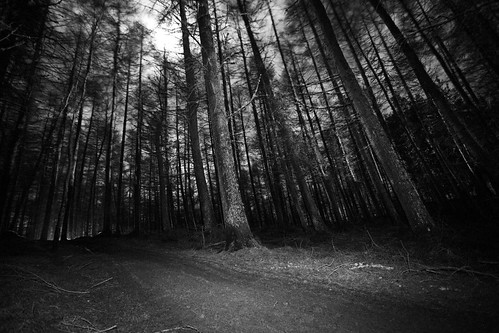So, I’ve
read Neuromancer, and I want to talk
more about the morality of the characters more than the technology. Molly seems
to be almost purely amoral. She has affection for Case, she feels hate for
Riviera, but she never takes any moral stances. Case obsesses over the death of
Linda Lee and his simulated ‘killing’ of the Julie Dean construct that
Wintermute uses to contact him; he never, however, takes an ‘edifying’ step, he
never pronounces upon the morality of the situation. Ultimately, he is driven
by pure self-interest. Wintermute was designed from the outset to seek to unify
itself with Neuromancer, so the degree of its moral culpability is ambiguous to
say the least.
The only
occasions of actual moral pronouncements on both the immediate situation of the
characters and upon the world as a whole come from the Rastafari of an O’Neill
habitat named ‘Zion.’ I worried that Gibson would stray into using the Rastafari
as comic relief, and to an extent he does, but the comedy comes from the
reactions of Case to their lifestyle and philosophy than from any idiocy on
their part. Indeed, despite the possible handicap of constant emersion in
cannabis smoke, they’ve constructed and operate a fully functioning space
colony. The Rastafari in Neuromancer
have performed a subtractive act, and have physically separated themselves from
corrupt modernity (‘Babylon’) in order to live according to their customs and
traditions. To be honest, they were perhaps the most human and likeable
characters in the novel.
When Case
introduces one of the Rastafari characters, Aerol, to the matrix (cyberspatial virtual
reality), he asks him what he saw. He responds simply: ‘Babylon.’ Correct me if
I’m wrong, but this is the only time we have someone in the novel pronouncing
upon the fallen world of Neuromancer,
making the much needed observation that there is something wrong here. It’s a world of poverty, corruption and painfully
casual cruelty (much like our own). Another Rasta character, who agrees to help
Case rescue Molly, describes the situation as ‘Babylon fightin’ Babylon, eatin’
i’self…’ Most curiously, when Case is trapped in a simulation by Neuromancer,
it is Rastafarian sacred music that pulls him back out of it...
What are to
make of the Zion subtraction from the fallen world of ‘Babylon’? It is
interesting that it is only the high-technology of the capitalist world that
has allowed for the Rastafari to remove themselves from ‘Babylon,’ though we
might respond by calling this a subversion of the (literal) mechanisms of
modernity: using the tools that capital has provided to distance ourselves from
capital… Perhaps by being (again, literally) above the world, looking down upon
it, they are the only characters in the novel in an appropriate position to
make pronouncements about the state of the world. The words ‘God’s eye view’
spring to mind… As someone who feels that there is a sore absence of the sacred
in today’s world, there is something heartening about the presence of a
community who believe in something like that. There is little forethought or
transcendental desire from anyone except Wintermute in the novel. Of course,
the dark side of the peaceful subtraction from modernity is the violent
rejection of it. There is at one point a hoaxed terrorist-scare blamed on
Christian fundamentalists which is immediately swallowed by the authorities, suggesting
pre-existent expectations of religiously motivated violence.
We must not
be too swift to dismiss the continued relevance of religion in the world, even
if only for purposes of pure Realpolitik.
It’s been a long time since Fukuyama declared the end of history, and I doubt
that many people where convinced by his proclamation, but history since then has continued
to reveal that society has still not settled on its final form, and the rise to
prominence of a group like ISIS and its self-declared Caliphate is yet another
indication that alternatives are available, though not necessarily preferable.
Religion is still yet to finish having its way with us, for better or for
worse.
For lots of pictures and few words, follow me on Tumblr.
For lots of pictures and few words, follow me on Tumblr.

